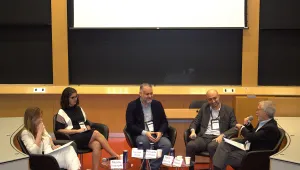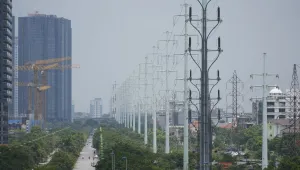Abstract
When carried out over a longer period of time with several recurrent processes, assessments provide an outstanding opportunity for learning from past experience and from other assessment experiences. Through learning, assessments could improve their procedures and enhance their effectiveness in regard to issue development in the thematic areas they are targeting at. If assessments were perceived as continuous learning processes, they could be organized as processes of perpetual improvement and reflective change of the assessment as an institution itself and, consequently, they might become more powerful institutions in the process of solving environmental problems.
The paper will address the following questions: How did the assessments at hand learn over the years and in the different phases of the assessment process? Which mechanisms had been in place to reflect on past experiences? How could the learning process be characterized, as an adaptation to given targets and belief systems or as a more self-reflective process that even induces changes of the objectives and underlying convictions of the actors involved? How could it have been done better when compared to insights from literature and to experiences from other assessments? Which internal structural, cultural, and personal factors could facilitate learning by and in assessments?
To answer these questions, I first develop a conceptual framework drawing particularly on literature on policy learning, on organizational learning and on learning of networks (section 2). Second, I address the questions mentioned above in two case studies, on the Intergovernmental Panel on Climate Change (IPCC) (section 3) and the assessments under the Convention on Long-Range Transboundary Air Pollution (LRTAP) (section 4). Both cases are iterative processes with significant changes of the assessment institutions over time. Nevertheless, they differ in some of their basic structures and in their effectiveness with regard to political outcomes. Third, I compare the results of the two case studies and draw conclusions in section 5.
Siebenhuener, Bernd. “How do Scientific Assessments Learn? A Comparative Study of the IPCC and LRTAP.” Environment and Natural Resources Program, Belfer Center, February 1, 2002





